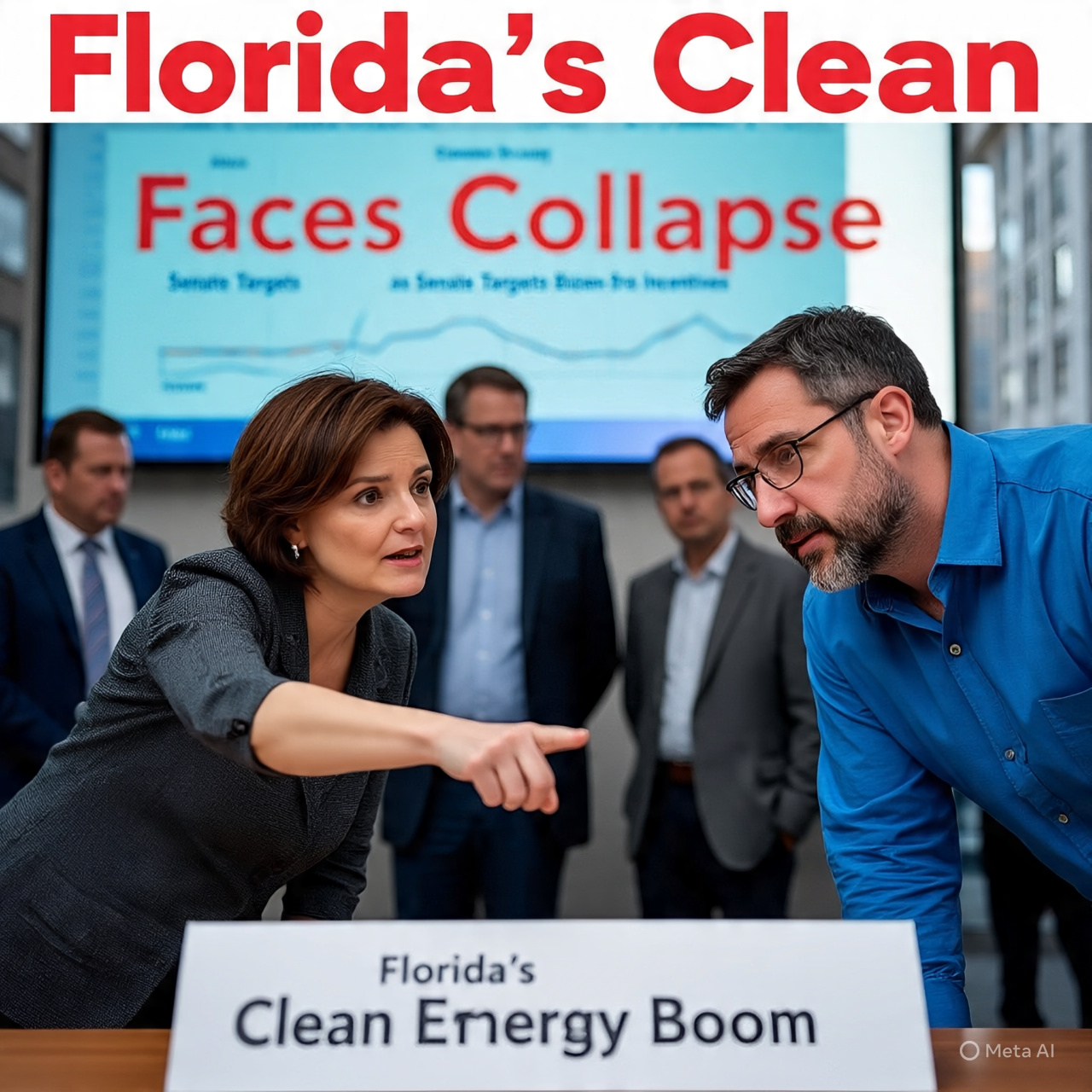FnF News
🇺🇸 FNF News | Energy & Politics
Published: June 18, 2025
By: Khadija Khan, National Correspondent
Florida’s Clean Energy Sector Braces for Fallout as Senate Faces July 4 Budget Deadline
Orlando, FL — With just over two weeks remaining before the U.S. Senate’s July 4 deadline to finalize a contentious budget reconciliation package, Florida’s renewable energy industry is sounding the alarm over a potential repeal of clean energy incentives—programs that have brought billions in investment and tens of thousands of jobs to Republican-led states.
The package, narrowly approved in the House of Representatives last week along partisan lines, includes provisions that would dismantle cornerstone policies of the Biden administration’s clean energy agenda, including tax credits for solar, wind, and EV development.
For energy companies and workers in Central Florida and across the Sun Belt, the bill’s advancement has triggered urgent warnings of economic “disruption” and long-term regional setbacks.
“It’s no exaggeration to say this could gut our momentum,” said Jessica Ramirez, spokesperson for the Florida Renewable Energy Alliance. “Many of these companies have only just broken ground. A repeal now would slam the brakes on job creation and infrastructure growth that communities here desperately need.”
Billions at Stake in Red States
Ironically, many of the clean energy incentives targeted in the bill have disproportionately benefited Republican-led states, including Florida, Texas, and Georgia. According to data from the Department of Energy, over $82 billion in clean energy investments have flowed into red states since the passage of the Inflation Reduction Act (IRA) in 2022.
Florida alone has received over $7.3 billion in federal and private clean energy funding, supporting over 25,000 jobs in sectors ranging from solar panel manufacturing to EV infrastructure development.
“This has been one of the few bipartisan economic wins in recent years,” said Dr. Michael Chen, an energy economist at the University of Central Florida. “Undoing it risks not just the green economy—but the broader job market in these fast-growing states.”
Political Paradox in the Sunshine State
The proposed repeal puts Republican lawmakers in a politically awkward position—particularly those representing districts that have directly benefited from clean energy incentives. Several Central Florida counties, including Orange, Seminole, and Osceola, have experienced a surge in job growth tied to solar and EV production hubs.
Despite this, Senator Rick Scott (R-FL) has defended the repeal language, framing it as “a necessary rollback of Biden’s Green New Deal nonsense.”
“Washington shouldn’t be picking winners and losers,” Scott said on Fox News. “Let the free market decide, not the federal government.”
His critics, however, argue that such statements ignore the real-world economic benefits already underway.
“What part of ‘jobs in your state’ do you not understand?” said Rep. Maxwell Frost (D-FL), who voted against the package. “This is the GOP sabotaging success because it came from the other team.”
Industry Pushback & Worker Anxiety
Major energy firms operating in Florida have issued strongly worded statements opposing the proposed repeal. NextEra Energy, one of the largest solar operators in the U.S., called the House bill “short-sighted” and warned it would “undermine America’s leadership in the global clean energy economy.”
Local contractors and workers are also speaking out. Amani Torres, a 29-year-old solar panel installer in Kissimmee, said she’s unsure whether her job will exist by fall.
“I left a restaurant job because this was steady, good pay, and I was helping the planet,” Torres told FNF News. “Now I feel like a political football.”
What Happens Next?
Senate Democrats are expected to oppose the House-approved language, and negotiations are ongoing. But with the clock ticking toward a Fourth of July recess and debt ceiling implications looming, compromise may be difficult.
Senate Majority Leader Chuck Schumer (D-NY) vowed to protect the clean energy credits, calling them “an economic engine for rural and red-state America.” Yet several moderate senators, including Joe Manchin (I-WV) and Kyrsten Sinema (I-AZ), have signaled openness to “narrowing” incentives based on “fiscal responsibility.”
Should the incentives be repealed, analysts predict a wave of stalled or canceled projects, layoffs, and higher long-term energy costs—especially in states that had begun aggressively building solar and wind capacity.
Conclusion: A Battle Bigger Than Politics
For many in Central Florida, the budget showdown isn’t about party allegiance—it’s about keeping the lights on and paychecks flowing.
“We’re not ideological,” said Ramirez. “We’re working-class people who believed in a future. Now we’re being told that future was a partisan mirage.”
Whether that future is preserved or dismantled may hinge on what happens over the next two weeks in the marble halls of the U.S. Senate.

